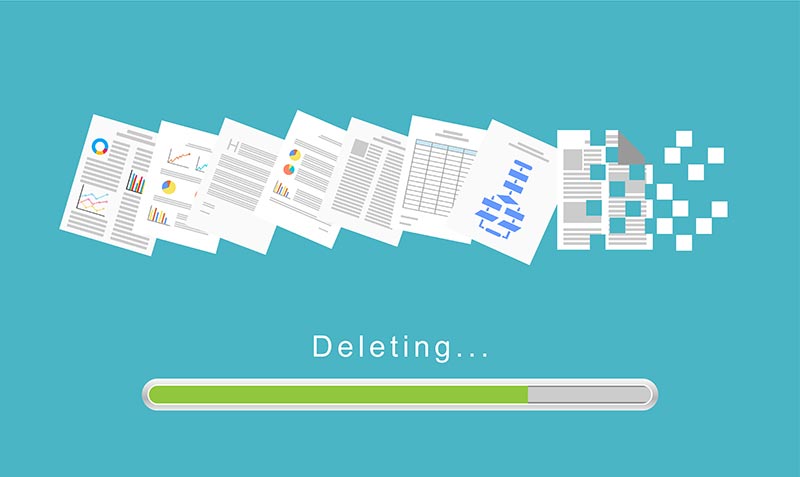Carelessly discarding computers and other electronic equipment can lead to severe data security issues. When data stored on computer hard drives, smartphones, and servers is not properly wiped or destroyed, it could be accessed by hackers who are attempting to access your financial information for personal gain.
In this article we will share the importance of destroying all data before recycling a computing device of any kind.
Why Recycle Old Computers?
E-waste is a growing problem around the world because it contains components that are harmful to soil, water streams, and all forms of life. Worse yet, only about 17% of all e-waste is recycled.
E-waste contains dangerous substances, especially heavy metals like cadmium and lead. When electronics are not properly recycled, the aforementioned toxins may be released into the soil and groundwater. These contaminants are linked to numerous health conditions, including birth defects.
E-waste also contains many different recoverable materials. Glass, plastic, and metals can all be recycled & repurposed to assemble new electronics, providing a clear financial & environmental benefit to the planet as a whole.
In many states and cities, electronics recycling is the law. Within these jurisdictions, government policies mandate that electronics are properly recycled, with penalties for companies that do not comply.
Why Does Data Need to Be Destroyed Before Recycling?
With environmental concerns & data security being a concern for us all, companies are recommended to perform their due diligence in order to keep their reputations intact & to be good corporate citizens.
Proprietary company data contained on old hard drives may include the personal information of employees and customers. It may consist of such sensitive data as Social Security numbers, home addresses & phone numbers, billing information, and medical records.
If this data is not fully destroyed before recycling, it runs the risk of being scavenged. Hackers are capable of stealing identities, taking over bank accounts, or exploiting private information in other ways. Stolen data may even be used to pressure or blackmail your customers or employees. This could leave your company to pay restitution if such an event occurs, or even cause irreparable reputation damage.

Data Removal Procedures That Do Not Work
Many people believe that they can remove the data from a hard drive by themselves without resorting to specialized techniques. However, the procedure is more difficult than it would seem at first glance.
Simply deleting files on a hard drive does not actually remove them. It simply marks the hard drive space as “available.” The data will be overwritten eventually, but it will still be accessible to crafty data thieves even after it occurs. Likewise, the belief that a magnet can destroy or warp data is merely a meritless claim with no evidence that it actually works.
Because of the lack of proven success & potential dangers that come with those methods, it is ill advised to attempt to destroy or delete data physically on your own. The only way to truly attain peace of mind that comes with certified destruction is to work with those who have decades of experience under their belts.
Methods That Work
The most effective way of permanently placing your data beyond the reach of any recovery software is to either wipe or physically destroy the drive. Reputable firms use a US Department of Defense (DOD) standard wipe of hard drives. They also use industrial hard drive shredders to give their customers peace of mind about their data security by breaking plates or magnetic media into tiny pieces.
Why Recycling is Important Today
Today, the world has a serious solid waste problem. Any way the amount of plastic, glass, and metals entering the waste stream can be reduced is worth the effort.
Recycling the materials found in computers and other electronics protects data security as well as public health and the environment. When metals from obsolete devices are recycled, the need to mine for additional resources is greatly reduced. When plastic is repurposed, less crude oil is used.
The Importance of Choosing a Reputable Computer Recycling Company
When choosing an electronics recycling company to pick up your old computers, it’s imperative to be certain that you are selecting a reputable one. A less experienced recycling firm lacking in certifications could have ill intentions and may access your data prior to recycling your devices.
Make sure that you use a well-regarded e-waste recycler that is transparent with its procedures. With their extensive experience, licensing and HIPAA compliance, you can rest assured that your old equipment is in good hands.



